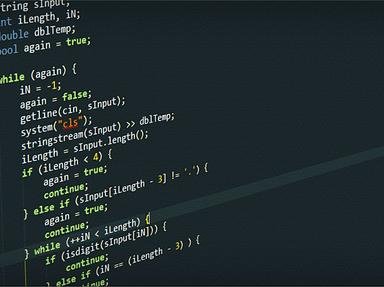Quiz Answer Key and Fun Facts
1. Who created the Python programming language?
2. Why was the language called "Python "?
3. Which of these languages does Python resemble in its class syntax?
4. Which languages does Python owe its origin to?
5. Which of these languages have strong support for regular expressions?
6. The following is NOT considered as an advantage of the Python programming language.
7. Python is one of the pillars of the active opensource software community. Which are the other languages promoted by the opensource community ? (HINT: These languages are sometimes wrongly called 'scripting' languages)
8. Which of these languages has Python NOT borrowed its features from?
9. What is the Java implementation of Python popularly known as ?
10. Which are the Usenet newsgroups on the Python programming language?
Source: Author
anandpillai
This quiz was reviewed by FunTrivia editor
crisw before going online.
Any errors found in FunTrivia content are routinely corrected through our feedback system.

